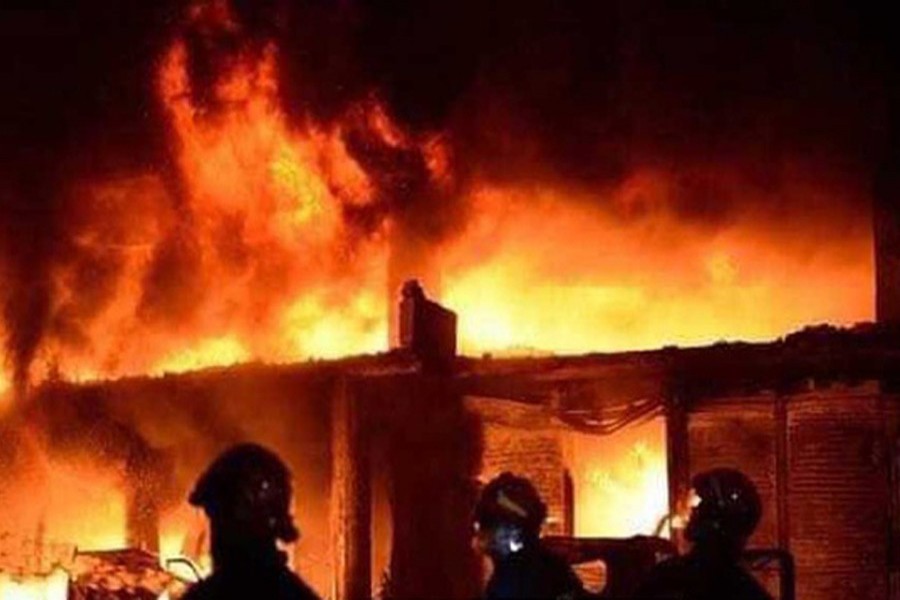Two factory fires in less than a week on the outskirts of the capital leave no doubt that defiance of rules and regulations with utter disregard for workplace safety is still pervasive in and around the country. The incidents of Keraniganj and Gazipur that saw 30 workers charred to death and many more seriously burnt speak not only of the irresponsible manner in which the factories were run but also the negligence of the overseeing authorities despite recurrence of similar and even more horrid tragedies almost every year.
Reports say the Keraniganj factory, a tin-roofed dingy structure with a single stairway and no fire exit, produced plastic products -- mostly one-time plates and cups. The Gazipur factory, located in a building in a residential area not meant for industrial use, made electric fans, which too did not have any fire exit. While absence of fire exit and single entry-exit gate made the two factories dreadful infernos, the Department of Inspection for Factories and Establishments (DIFE) can in no way shirk its responsibility in that it is the sheer incompetence of the state body to rein in the law-defying culture of setting up hazard-prone factories that should be held equally responsible for the deaths. As things stand now, it is a pattern that is repeating itself time and again, and despite warnings from all quarters, even from the highest level, there is no noticeable change in curbing the menace.
For any sensible citizen, the chemical warehouse blaze in old Dhaka early this year preceded by few more in the recent past including the one that ravaged an entire neighbourhood at Nimtoli should have served as the strongest wake-up call for all concerned to ensure that the rules and regulations took their due course in disciplining many errant factory practices. It is with this intent that the DIFE was strengthened with a mandate to remediate plastic and chemical factories most of which run in hazardous conditions and are in dire need of safe working atmosphere. That the efforts did not pay is clear enough.
Understandably, there are two issues here. The first -- setting up factories in places not meant for such establishments, and second -- noncompliance of rules relating to various safety concerns even though the factories might have been set up with government approval. The DIFE being the designated state body is duty-bound to see that these two basics are respected in the first place. But why is it not up to its task? Is it influence peddling or the common excuse of dearth of manpower that stops it from acting? No wonder, both may be found instrumental, and as has been the case in many such failed activities, one acts as a proxy for the other. While influence does prevent a lot of works that need to be done, dearth of manpower and logistics is often resorted to as a compelling argument for inaction. The authority concerned should now step in to put things in right perspective.


